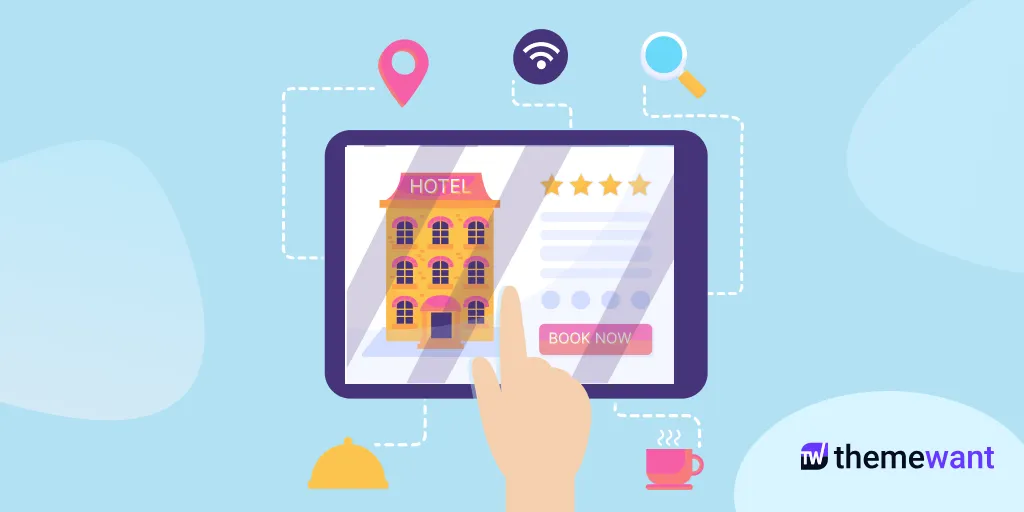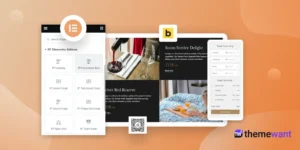If your hotel website is getting visitors but not turning them into bookings, it’s a clear sign something’s not working. A booking engine that fails to convert can lead to lost revenue and missed opportunities, even if your property and offerings are top-tier.
Several factors can impact conversions—ranging from complicated navigation to a lack of trust signals or slow load times. In this blog post, we’ll explore the common issues that hurt booking performance and share practical steps to improve your engine and start securing more direct reservations.
So, without further ado, let’s dig deeper.
What to Do If Your Hotel Website’s Booking Engine Isn’t Converting
Your hotel website is getting visits—but your rooms aren’t getting booked. If your booking engine isn’t converting, it’s time to fix what’s costing you revenue.
Understanding the problem
If your hotel website sees plenty of traffic but few bookings, the issue likely lies within your booking engine. A beautiful homepage alone can’t make up for a process that’s slow, confusing, or outdated. Travelers today expect instant, seamless booking experiences—or they’ll move on.
Understanding what’s wrong is the first step. Whether it’s a lack of trust, clunky design, or mobile incompatibility, identifying friction points will help you make changes that truly impact your bottom line.
Analyzing user behavior
Before making any assumptions, dive into your analytics. Tools like Google Analytics or Hotjar can show where users drop off, what devices they use, and how long they stay on booking pages. This data is gold.
Pay close attention to bounce rates, exit rates, and behavior flow. Are users leaving right before checkout? That’s a signal to examine your form layout, pricing clarity, or booking engine performance.
Speed and mobile optimization
Slow load times are a silent killer. A booking page that takes too long to load—especially on mobile—can cost you dozens of potential reservations a day. Mobile users make up a growing share of travel bookings.
Your booking engine must be fast, responsive, and touch-friendly. Test it across various devices and browsers to make sure guests enjoy a frictionless experience, wherever they’re browsing from.
Simplifying the booking process
Complex or lengthy booking forms are a major turn-off. If guests need to click through multiple pages, input unnecessary details, or go back to clarify rates, chances are they’ll abandon the process.
Keep the flow intuitive. Limit steps, auto-fill where possible, and only ask for essential information. The goal is to let guests complete their booking with confidence and speed.
Building trust and credibility
Online trust is everything. If your booking engine looks unprofessional or lacks security badges, guests may hesitate to enter personal or payment details. This is especially true for international travelers.
Showcase customer reviews, use SSL certificates, display refund policies, and include logos of secure payment processors. The more reassured guests feel, the more likely they are to book.
Highlighting clear CTAs and urgency
Your “Book Now” button should stand out—bold, easy to find, and repeated throughout the booking process. Vague calls to action or poorly placed buttons can confuse or frustrate users.
Creating a sense of urgency also helps. Limited-time offers, low availability alerts, or countdowns for deals can gently push guests to finalize their decision.
Personalization and smart recommendations
Static booking flows don’t always connect with modern users. A smarter approach is to personalize suggestions based on user behavior, such as showing special packages for families or discounts for returning visitors.
Small touches like remembering search preferences, recommending room upgrades, or highlighting nearby attractions can enhance the experience and drive conversions.
A/B testing for improvement
Don’t guess—test. A/B testing lets you try different versions of booking pages, buttons, or offers to see which one performs better. Sometimes, even a small change in button color or wording can make a big difference.
Testing helps you refine your user journey without overhauling your entire site. Focus on one change at a time to see what works best for your audience.
Using live chat or booking assistance tools
Guests sometimes just need a nudge or a quick answer. Adding live chat or booking support plugins can help solve last-minute concerns that would otherwise lead to drop-offs.
An assistant that can answer questions about cancellation policies, nearby amenities, or special requests in real time can help close more bookings effortlessly.
Integrating with the right booking engine provider
Not all booking engines are created equal. If your current provider lacks flexibility, features, or support, it might be time to upgrade. A modern engine should be fast, mobile-optimized, secure, and customizable to match your brand.
Look for booking engines that offer real-time availability, seamless calendar sync, upsell options, and easy management tools for your team.
Final Thoughts
If your booking engine isn’t converting, it’s not just a tech issue—it’s a revenue leak. By addressing performance gaps, streamlining the process, and building guest trust, you can turn clicks into confirmed stays.
Focus on what matters most: speed, clarity, and convenience. With the right changes, your booking engine can become your hotel’s most powerful direct sales tool.













